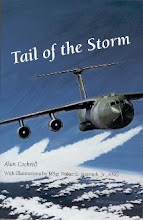Been lazed? Boy, I have. By Mother Nature.
In the summer over the north Atlantic the sun hovers all night just below the northern horizon and slowly swings up in front of you like a surfacing submarine. Your eyes have plenty of time to adjust. But in deep winter it pops out of the east and fires an eye-piercing beam straight at the cockpit. Gotcha!
Eyes accustomed to dark flight painfully squint. Blocking hands go up. Curses issue forth as shade panels―sarcely effective―are pulled from their cubbie holes and attached to the windshields.
Every time I hang those loathed things, I want to track down the engineer who designed them, grab him by the lapels, slam him against the wall and slap his feckless face. One first officer I flew with suggested he was the Seattle town drunk. He was probably the same one who designed the overhead panel.
Now I have to contend with buttons instead. Still, Boeing calls the buttons switches. You push it, it's on. Push it again and it's off. A little light in the button―hard to see―tells you which is which. Yeah, it had to be the same engineer. Jerk.
The two engine anti-ice switches (1 inch square buttons) are located just below the two center tank fuel boost pump switches (also 1 inch square buttons). You guessed it. We descended into the cold clouds over Moscow and I turned the boost pump switches on. Or were they off?. Idiot. Not me, them. Effective human engineering requires effective humans to do the engineering. Dorks.
Still, the 767 is a mighty fine machine and despite my switchology shortcomings it got us to Moscow two nights ago right on time and in one very desirable piece. Yes, you read that right―two nights ago. This is a once-a-year 75 hour, 3-night, layover, because of the transition to the new year. I've been here so long I feel like I need to apply for Russian citizenship.
But no. Don't want that. The Russians have an English-speaking television news station that features one commentator after another trashing America. I don't think the Cold War is yet over.
I'm with two pleasant first officers. We've been enjoying Moscow's eateries and snow-covered sights for, how long? Nearly three days now. One is an ex-Marine, a Buddhist, a vegetarian, and a socialist. Strange combination of traits. I told him to go to Red Square and sing a mantra over his buddy, Lenin.
In a few minutes I'll go down and join the entire crew for a round or two and then we'll bundle up and be off for the mile or so walk to Red Square, where we'll mix with the Russian multitudes. I'm looking forward to seeing fireworks―brilliant as a north Atlantic winter sunrise―over St. Basil's Cathedral. I'd rather be home, but there are worse palces to ring in the new year.
Happy and blessed New Year to you.

































